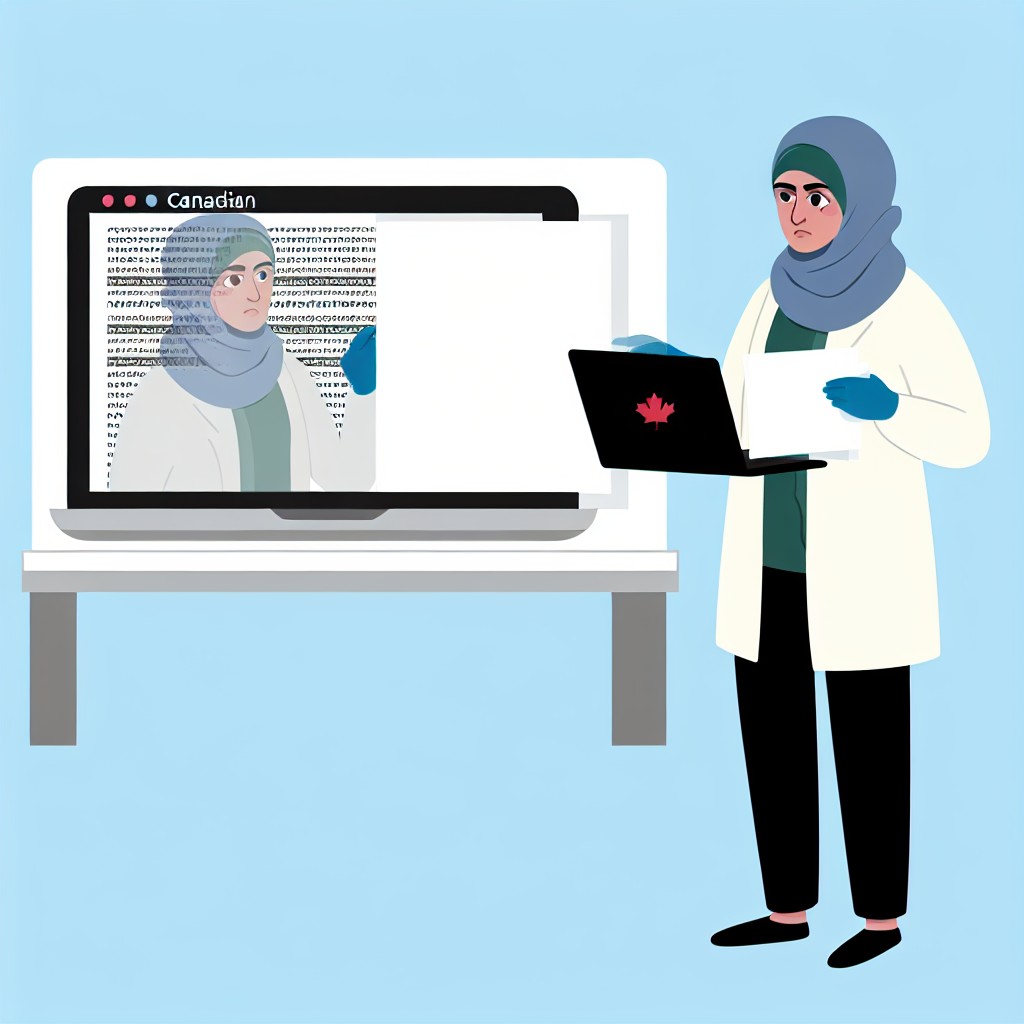Overview of the Geneticist’s Role in Research and Healthcare
Research Responsibilities
A geneticist plays a crucial role in scientific research.
They investigate hereditary diseases and genetic disorders.
By analyzing DNA, they uncover genetic variances.
They often collaborate with other scientists and healthcare professionals.
This collaboration enhances the understanding of genetics.
Furthermore, geneticists contribute to developing treatment strategies.
This can lead to advances in personalized medicine.
Clinical Responsibilities
In the healthcare sector, geneticists offer valuable insights.
They work with patients to assess genetic risks.
Providing genetic counseling helps individuals understand their options.
Additionally, they interpret genetic test results.
This interpretation is vital for patient management.
Geneticists also create treatment plans based on genetic data.
Such plans can significantly improve patient outcomes.
Educational Role
Geneticists are also involved in education and training.
They teach medical students and other healthcare providers.
This education is essential for promoting genetic literacy.
They may lead workshops and seminars on genetic topics.
Moreover, geneticists help raise public awareness about genetics.
This awareness can influence health behaviors and decisions.
Technological Integration
Technology plays a significant role in genetics today.
Geneticists utilize advanced tools for sequencing DNA.
They often employ bioinformatics to analyze vast datasets.
Moreover, they stay updated on technological advancements.
This knowledge allows them to apply the latest methods in research.
Unlock Your Career Potential
Visualize a clear path to success with our tailored Career Consulting service. Personalized insights in just 1-3 days.
Get StartedOverall, technology enhances the accuracy of genetic testing.
Ethical Considerations in Genetic Practice
Ethics is a critical component of a geneticist’s work.
They navigate complex ethical dilemmas related to genetic testing.
Moreover, they ensure patient confidentiality and informed consent.
Geneticists also advocate for responsible use of genetic information.
This includes considerations of discrimination and privacy.
Ultimately, they strive to balance innovation with ethical standards.
Typical Morning Routines of a Geneticist
Laboratory Setup
A geneticist typically starts the day by reviewing their research objectives.
This morning review helps prioritize tasks for the day.
Next, they arrive at the lab and begin the setup process.
They check and calibrate essential equipment for experiments.
Safety checks are crucial, ensuring all protocols are followed.
Afterward, they prepare the necessary reagents and samples.
A well-organized workstation fosters efficiency throughout the day.
Once everything is ready, they move on to conducting experiments.
Team Meetings
Meetings are an important aspect of a geneticist’s morning routine.
They participate in discussions with colleagues and supervisors.
These meetings often focus on ongoing research projects.
Updates on project progress are shared among the team members.
Collaboration fosters innovative ideas and problem-solving.
Furthermore, discussions can lead to adjustments in research strategies.
Connections formed during these meetings strengthen team dynamics.
Finally, they schedule follow-up meetings to track progress.
Key Responsibilities
Conducting Experiments
A geneticist conducts various experiments to explore genetic structures.
These experiments often involve manipulating DNA samples.
Additionally, they may use techniques like CRISPR for gene editing.
This hands-on work allows them to test hypotheses related to genetics.
Analyzing Genetic Data
After conducting experiments, geneticists analyze the resulting data.
They utilize bioinformatics tools to interpret complex genetic information.
This analysis aids in understanding genetic variations and their implications.
Furthermore, they employ statistical methods to validate their findings.
Collaborating with Teams
Geneticists often work closely with other scientists and researchers.
They share findings and collaborate on multidisciplinary projects.
This teamwork enhances the quality of research and its applications.
Moreover, effective communication fosters innovation in genetic research.
Documenting Research and Results
Documenting research is vital in a geneticist’s daily activities.
They prepare detailed reports outlining their experimental procedures.
These records also include observations and conclusions drawn from data.
Publishing results in scientific journals helps disseminate valuable knowledge.
Staying Informed
A geneticist must keep up with the latest advances in their field.
They read scientific literature and attend conferences regularly.
This continuous learning ensures they remain at the forefront of genetics.
Additionally, it enables them to adopt new methodologies effectively.
Find Out More: Best University Programs for Ecologist Studies
Use of Advanced Technology and Software in Genetic Analysis
Importance of Technology in Genetics
Advanced technology revolutionizes the field of genetics.
It allows scientists to analyze complex genetic information efficiently.
This technology enhances research quality and results.
Common Software Tools
Geneticists widely use software tools for various analyses.
Bioinformatics software aids in managing genomic data.
Examples include BLAST and Geneious for sequence alignment.
These tools improve accuracy in identifying genetic variations.
Data Analysis Techniques
Data analysis techniques play a crucial role in genetics.
They help researchers interpret large datasets effectively.
Next-Generation Sequencing (NGS) software enables rapid analysis.
Machine learning algorithms assist in predicting genetic outcomes.
Additionally, these techniques streamline the mapping of genetic traits.
Integration of Robotics and Automation
Robotics and automation enhance laboratory efficiency.
Automated liquid handlers increase the speed of experiments.
Robotic systems minimize human error in sample processing.
This integration supports high-throughput screening of genetic samples.
Collaboration and Data Sharing in Genetics
Modern software facilitates collaboration among geneticists.
Cloud-based platforms allow secure data sharing.
This fosters global research initiatives in genetics.
Collaborative tools enhance transparency and reproducibility in studies.
Explore Further: Geneticist Salary Expectations and Career Growth in Canada
Collaboration with Other Scientists and Healthcare Professionals
Building Interdisciplinary Teams
A geneticist often collaborates with various professionals.
These include biologists, bioinformaticians, and clinicians.
Such partnerships enhance research outcomes significantly.
Interdisciplinary teams allow for diverse ideas.
Research Partnerships
Geneticists often establish research partnerships with universities.
They work closely with graduate students and postdoctoral researchers.
Collaboration helps fuel innovative projects and discoveries.
Shared resources lead to efficient experimentation.
Engaging with Healthcare Teams
Geneticists frequently interact with healthcare professionals.
They provide insights on genetic screenings and diagnostics.
Healthcare providers rely on geneticists for patient counseling.
This ensures patients receive accurate information regarding genetic conditions.
Networking and Conferences
Attending conferences is essential for a geneticist.
These events foster networking and collaboration opportunities.
Geneticists can learn about the latest advancements in the field.
They can share their research findings with peers.
Establishing Industry Connections
Working with pharmaceutical companies is common for geneticists.
They assist in developing genetic therapies and precision medicine.
Such collaborations can lead to breakthroughs in treatment options.
Industry relationships sometimes result in funding opportunities.
See Related Content: Common Tools and Equipment Used by Geologists

Documentation and Reporting of Research Findings
Importance of Accurate Documentation
Accurate documentation is crucial for geneticists.
It ensures the reliability of research data.
This process promotes transparency in findings.
Additionally, it fosters credibility in the scientific community.
Daily Documentation Tasks
Each day involves meticulous record-keeping.
We document experimental procedures in detail.
This includes noting every variable in our studies.
Furthermore, we record any deviations from protocols.
Utilizing Software Tools
We often use specialized software for documentation.
This software helps maintain data organization.
Additionally, it streamlines the reporting process.
Examples of software include LabArchives and Benchling.
Preparing Research Reports
After completing experiments, we prepare reports.
Reports need clear and concise writing.
Each section should include relevant graphs and tables.
Moreover, we ensure all findings are well-articulated.
Submitting Findings for Peer Review
Once reports are finalized, we submit them for peer review.
This process involves critical feedback from fellow scientists.
Incorporating this feedback is essential for quality improvement.
It also enhances the validity of our research outcomes.
Publishing Research Articles
Ultimately, we aim to publish our findings.
Publication involves selecting appropriate journals.
We follow submission guidelines meticulously.
After publication, we celebrate our contributions to science.
Explore Further: Educational Requirements for Canadian Epidemiologists
Challenges Faced in Genetic Research and Problem-solving Strategies
Complexity of Genetic Data
Genetic research involves analyzing vast amounts of complex data.
This complexity often leads to challenges in interpreting results.
Moreover, researchers must ensure accuracy in their analyses.
Data management strategies help streamline this process.
Access to Funding
Securing funding for genetic research remains a significant challenge.
Many researchers apply for grants from various organizations.
Additionally, crowdfunding has emerged as a valuable alternative.
Successful funding acquisition allows for more extensive studies.
Ethical Considerations
Ethics play a crucial role in genetic research practices.
Researchers must navigate issues surrounding genetic modifications.
Maintaining participant confidentiality is also essential.
Adhering to ethical guidelines promotes responsible research.
Collaboration and Communication
Collaboration among researchers enhances the quality of studies.
Effective communication is vital for successful partnerships.
Team meetings and regular updates ensure alignment on goals.
Furthermore, sharing results supports transparency in research.
Problem-solving Strategies
Implementing robust problem-solving strategies is essential.
First, researchers analyze the data from multiple angles.
Next, brainstorming sessions with peers can generate new ideas.
Additionally, utilizing software tools simplifies data analysis.
Finally, maintaining an adaptable mindset allows for innovative solutions.
Continued Education and Professional Development Opportunities
Importance of Ongoing Education
Ongoing education is essential for geneticists.
The field of genetics evolves rapidly.
New discoveries and technologies emerge frequently.
Maintaining expertise helps geneticists remain competitive.
Formal Education Programs
Many universities offer advanced degrees in genetics.
These programs often include specialized courses.
Topics can range from molecular biology to bioinformatics.
Formal education lays a strong foundation for careers.
Workshops and Conferences
Workshops allow geneticists to gain hands-on experience.
Conferences provide networking opportunities with experts.
Attending these events fosters collaboration and innovation.
Additionally, they enable personal connection to the field.
Webinars and Online Courses
Online platforms offer flexible learning options.
Webinars cover trending topics in genetics.
Online courses often feature engaging multimedia resources.
These options are great for busy professionals.
Chemical and Biological Society Memberships
Joining professional societies offers numerous benefits.
Members gain access to exclusive resources and publications.
Additionally, societies often host educational events.
Networking with peers encourages shared learning.
Certification Programs
Several organizations provide certification in genetics.
Certification demonstrates expertise in a specific area.
It enhances credibility in the job market.
Moreover, it can lead to advancement opportunities.
Staying Updated with Research Journals
Reading research journals keeps geneticists informed.
Such journals publish groundbreaking studies regularly.
Subscribing to relevant journals fosters continuous learning.
This practice can lead to innovative ideas in research.
Additional Resources
The Role of AI in Hospitals and Clinics: Transforming Healthcare in …




